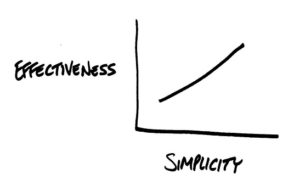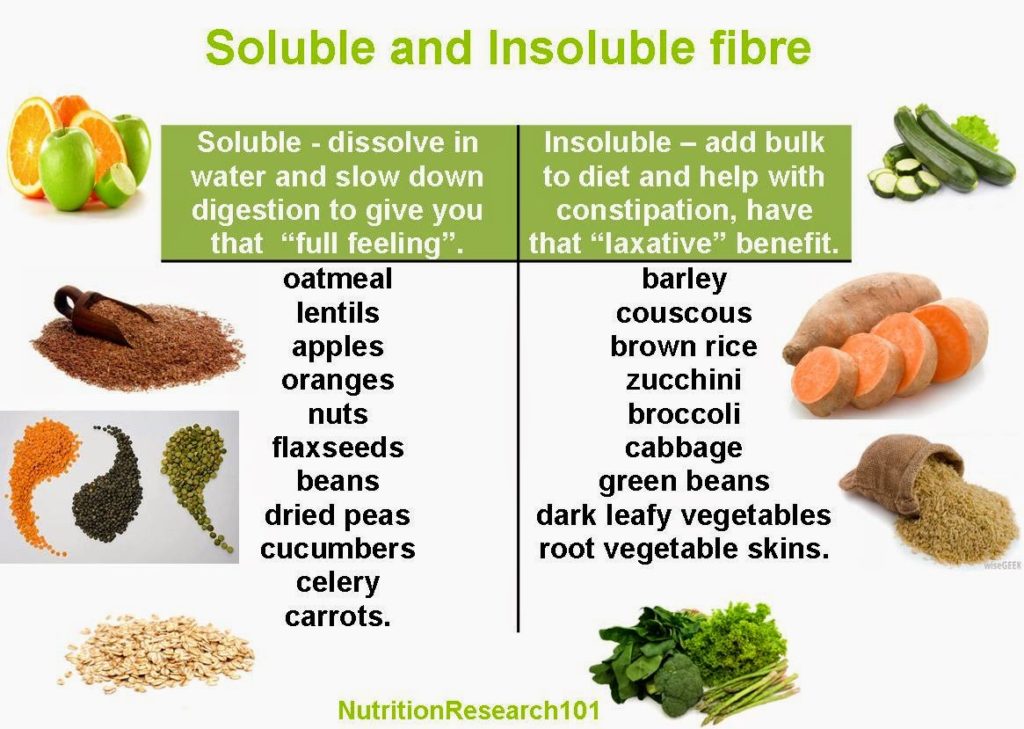 The biggest challenge to treating eczema is NOT the lack of a solution, but the lack of discipline and motivation to keep pushing.
The biggest challenge to treating eczema is NOT the lack of a solution, but the lack of discipline and motivation to keep pushing.
We often dive into a superiorly clean diet and get all pumped up but eventually lose momentum after a few weeks of either hardship or not seeing immediate results.
The question goes: I’m in the diet now, now what? Why isn’t my eczema going away?
Here are some common challenges I’ve gathered:
- Why isn’t my eczema healing despite doing the right things?
- Why does my eczema stay on a plateau even on a correct diet?
- Why do I get digestive symptoms e.g. constipation, bloating, excessive gas?
Inspiration to This Post (Matters to You Too)
Some CES readers joined the Facebook group “Reverse Eczema Together” (click the link to join) where people post and comment on each other’s questions.
Part of the reason is because I may not always be present to offer suggestions (within what I know), and partly because the members come from different backgrounds with more specific experience e.g. mothers who are struggling with their child’s eczema.
So this post bases on a short poll I created inside the group. If you have topic suggestions for the next publish, do let me know!
Challenge #1: Why isn’t my eczema healing despite doing the right things?
 This is an extremely common question. I seem to be following this plan. I’ve been eating my fish. I exercised. Why does my eczema recovery progress stay stagnant?
This is an extremely common question. I seem to be following this plan. I’ve been eating my fish. I exercised. Why does my eczema recovery progress stay stagnant?
“Right things” can mean different goals to different people, say:
- How fast you want to achieve recovery,
- What type of lifestyle you want to have during and after your recovery,
- Which is in turns determined by how flexible you are with your schedule,
- And how you can incorporate ways to adjust your dietary habits.
So the bigger question we often skip: Have you measured how realistic you can pursue your eczema recovery goals?
Time
(Yes, I know. Time is a resource too, but for the sake of this, just assume time means the following.)
It doesn’t help to say, “I can allocate two hours per day.” What does that mean? What you may consider is, what parts of the day can I gradually routine-ize?
Example 1: Personal education on eczema, nutrition and general skincare tips.
We know the internet suffers information overload. How about, consume 1 high-quality informative and educational article on a field relevant to yours? For mothers, that would mean how to handle toddlers with tooting gel sensitivity (think salicylates. Wait, what are salicylates? There you go).
Example 2: College students find it tough to eat well within a limited budget.
We won’t get into why society levies higher for eating well, but the idea is to set aside a time to think about your realistic dietary habits:
- What are the options available to me?
- What on the campus should I avoid? What is acceptable?
- What are considered gray areas where I can visit periodically?
- On average once per week, how many times should I set aside for eating clean at home and cooking myself?
- Maybe I can set aside a time to gather groceries on Sunday?
Actionable steps for considering your time:
- Personal education on informative articles relevant to your eczema or of yours.
- Figuring out your options. What is available to you to eat well in your environment?
- Change your sleeping habits. To sleep on a regular schedule with enough hours, say 7:30 hours daily. Sleeping and waking up early is best, but you could shift your timeframe as long as you shift the meal times with your sleeping patterns.
- Plan exercise. Setting regular blocks of time, around 2-3 times per week for 30 minutes of aerobic exercise.
- Learn to de-stress. Learning techniques to cope with stress, or outright eliminate what is stressing you in your life. Sounds cliché and unrelated, but how you receive and respond to stress directly affects how your hormonal levels operate, and so, affecting your immune regulation an skin symptoms.
Resources
I mean non-time-specific things like monetary considerations. How much can you afford to eat clean on a tight budget? How accessible are you to your groceries?
Flexibility
Can you shift your current schedule to accommodate all these new habits?
Discipline
Keywords: support and habit regulation.
Let your close ones know about your plan, so they can understand why you don’t want to go out the other night. If you’d rather not disclose for social reasons, then begin to reject plans a lot. Habits are about supporting your discipline.
- Can you eliminate all the unhealthy foods in your cupboards, the snack bar and bag of chips, either give them away or trash them?
- Can you fixate your schedule say, Wednesday nights for workouts, or sleep at 12, wake up at 7:30, everyday?
These are four pointers to ask yourself, can I really make this happen? If so, how realistic will my progress be and will I, say, accept the slow progress due to my constraints on one or more of the criteria? That’s how to respond to the notion of “right things” – which are largely determined by how fittingly you are do those right things.
Why doesn’t your eczema go away? Depends. On what? These.
Suggested Reading: 5 Easy Ways To Start Your Eczema Recovery Plan NOW!
Challenge #2: Why does my eczema stay on a plateau even on a correct diet?
“Something i’ve been looking into lately thats really interesting is learning more about underlying causes that could cause eczema to not heal as usual (inspite of correct diet etc). For example, things like SIBO, Candida, Parasites, emotional blocks, etc.” – Jen
 Most of us should realize by now there is no ONE “correct diet” but a set of principles if you eat well, avoid things that are sensitive to you, and naturally, your immunity gets better, your eczema will gradually disappear.
Most of us should realize by now there is no ONE “correct diet” but a set of principles if you eat well, avoid things that are sensitive to you, and naturally, your immunity gets better, your eczema will gradually disappear.
So the question is: what if I’m eating well but because of these underlying causes e.g. SIBO, candida, parasites, emotional blocks, my eczema does not go away?
I acknowledge these are all factors that drive eczema, however, heavy information on these causes are only essential for researchers. I usually avoid covering these topics in-depth because:
- Efficacy. Everyday consumers have one simple goal: get rid of eczema as quick as possible, “just give me the solution and perhaps basic knowledge of why I should do what you say.”
- Confusion. Introducing new elements seem to drive more confusion e.g. we know yoghurt helps with strengthening gut microbiome, but lactose from dairy as an oligosaccharide is known to trigger more symptoms. (Suggest Reading: 12 Annoying Eczema Contradictions That Seriously Need To Stop)
- Simplicity. Pretty much all the underlying causes are addressed if the diet is followed e.g. instead of targeting candida with antifungal medications, consuming natural food-based antimicrobials is already part of the solution.
If you are interested in learning more about the topics like candida, yeast infection, abnormal hormonal fluctuations, cortisol mechanisms, etc, you can always Google. Just remember to read credible sources like:
For emotional blocks, instead of shoving you with “go meditate,” I recommend reading more on forgiveness, self-esteem, and coping with difficult people. If these big topics are tackled, many other things should settle down. Lastly, consult others with relevant experience for advice. An outsider can often see a situation much clearer.
Specific conditions like candida overgrowth, and SIBO, are useful to know for knowledge, but misdirecting when treating the entire problem of eczema because rarely does our eczema come from one of these mentioned conditions. But a mixture. Hence, it makes more sense not to address one but address all with a simple principle-based anti-inflammatory diet.
Suggested Reading: 11 Diets Claim To Heal Eczema, But Do They Work? (And What’s Best?)
Challenge #3: Why do I get digestive symptoms e.g. constipation, bloating, excessive gas?
“[I get] constipation, though already eaten lots of veggie and fruits…” – Luci
Constipation
There was once I had to use intrusive enemas and laxatives to stimulate movements. The longest time I’ve had without a bowel movement was 7 days. During year 11 and year 12, I was really confused. I drank a lot of liquids, coffee and tea, with frequent urination. I ate vegetables regularly. I felt “stuffed” but the movement just didn’t really come. I also ate fish occasionally to up some protein and good fatty oils. I ran at night to up my exercise count. I seemed to do everything right but nothing worked. What were the problems in hindsight?
Overconsumption of caffeine, lack of sleep, lack of diversity of dietary nutrition.
Point is, it may seem we are doing everything right, but ultimately there are reasons why your body behaved a particular way. Yes, I can now reasonably suspect that I had poor microbiota health because I consumed a lot of sugar and sensitive oligosaccharides (dairy) with the coffee I drank. I also ate lots of rice (talking about one big bowl per meal). But back then, I would be trapped in the bias and assume it was all okay.

Here are constipation-specific tips (source):
- Monitor carbs. Ban table sugar intake e.g. candies, artificial flavors. Even with the carbs you eat, say rice, mix it up with multi-grained rice with millet and quinoa.
- Cut the dietary hormonal disruptors. Drink lots of non-stimulant water. No coffee, alcohol, and light tea consumption. (Note: coffee is a laxative but it’s controversial whether you should consume regularly due to dependency).
- Exercise, sleep. Exercise often, 2-3 times per week of 30 minute aerobic activity. (1, 2, 3) Sleep routinely and enough, around 7 hours per day.
- Do not over-consume fiber. We often believe eating more vegetables, more fiber, is the solution to ending constipation. But it’s not. If we crowd in too much, without excreting the respective amount, then the excretion bulk is going to condense, which makes movement even harder. The catch is to, trigger your movement as soon as you can feel the bulk is becoming immobile. 25-38g of fiber daily is recommended. Consider a cup of oatmeal contains 4g, a cup of raspberries 8g, brown rice 3.5g, 2-cup serving of lettuce around 2.5g. An ounce of almonds, 3.3g.
- Consume fiber properly. There are two types of fiber, water-soluble (e.g. nuts, seeds, beans, some fruits and vegetables), water-insoluble (e.g. vegetables, whole grains).
- Eat at appropriate times. Try not to consume heavy at night because you’ll be sleeping. Stick with your circadian rhythm. If you sleep at 11pm, aim to eat around 6pm.
- Drink warm liquids in the morning. A family adage recommends drinking warm water early to trigger movement. Water, soup, congee, etc. While it doesn’t have to be restricted to mornings, the defecation reflex is called gastrocolic reflex, and is triggered after a meal or liquids into the digestive tract.
- Take probiotics. Particularly these strains: “Bifidobacteria (B. bifidum, B. infantis, and B. longum) and Lactobacillus (L. casei, L. plantarum, and L. rhamnosus)” as they increase bowel movement frequency.
- Eliminate dairy. Complicated and sensitive carbohydrates.
- Specific fruits and vegetables. Have green kiwis, prunes, but not persimmon, bananas.
- Schedule it. I personally didn’t do this, but some suggest sitting in the toilet everyday around the same time, even if it doesn’t work. Eventually, your body understands.
These tips are not limited to people who have constipation. Digestive health is important to all eczema sufferers. If you have eczema, I say with near certainty your body has imbalanced and poor distribution of microflora exacerbating your skin symptoms.
Bloating and Excessive Gas
Sometimes, we have gas causing us to bloat. Sometimes, we bloat without that surge of excessive gas. Sometimes, just gas without bloating.
Back when I was at the sensitive phase, I can deliberately trigger bloating. I could consume a carton of milk and immediately bloat. The amusing thing is, this “experiment’ was repeatable. So obviously, I was sensitive to dairy. Now I can consume milk just fine without bloating.
Takeaway: If you are at the sensitive phase right now, develop the habit of remembering what affects you after your meals. What made you bloat? What didn’t? Why is it that, usually when I eat rice, nothing happens, and when I ate at Delifrance, I bloat? Maybe it’s the cheese powder they sprinkle and the gluten-packed chowder sauce they pour on your chicken rice.
Bloating and gas means you’re sensitive to what you just consumed. This can mean two things:
- You unknowingly ate something you cannot. The solution is to develop the habit to remembering what triggers you.
- You consumed something you thought was safe. The solution is an elimination diet, or gradually taking food choices on and off week by week to identify the culprit.
Last point: Your sensitivities are dynamic. Your triggers change as you recover. Like mine, I’d be highly sensitive to dairy in the past, but now I would be alright with a carton or two, but not excessively. This is mostly detective work.
Takeaways for Eczema Sufferers: Why Does My Eczema Not Go Away?

When people ask “why does my eczema not go away?” Link them here. Because behind “going away,” there needs to be specific considerations of how you can make your eczema recovery work, the factors driving your recovery, and common obstacles stopping you on a plateau.
- Adolescents: Work on your dietary plan, hold yourself accountable on what you can and cannot eat. Most importantly, keep pushing. Results won’t come quick. Record yourself and see how much you change after 30 days.
- Students: As above for controlling your habits. Discipline is often the biggest challenge. Budgeting is also necessary. Learn recipes. See what healthy while not necessarily delicious foods you can prepare yourself. At least, you’re not aggravating your symptoms.
- Working Age: Due to time constraints, consider healthy lunch options despite being more expensive. Make smoothies in the morning or night. Schedule with yourself morning running plans or weekly workout plans. Work on coping with stress. Avoid gatherings with alcohol and sensitive foods.
- Parents for children: Research on toddler-specific nutrition. No formula milk. No sweets. Develop habits for consuming healthy foods as snacks. Keep them away from environments prone to unhealthy food options. Read on salicylates sensitivity. Spend more on natural-based shampoo and body wash. Ditch popular commercial lotions and moisturizers (due to chemicals) and opt for clean versions. Try natural solutions e.g. oatmeal baths.
- Elderly: Focus is on maintaining regular exercise, and consuming foods from a variety of sources for appropriate nutrition. More patience as it may take longer for recovery.
Did you like this post? Any thoughts? Leave a comment below and let me know if you have suggestions for the next post!
If you would like to get more hands-on information like this article, I invite you to join this slowly rising community of parents and adults on Facebook called “Reverse Eczema Together“. It’s free, and hey, it’s technology 🙂
Thanks for the article. This was really helpful.
When i went to the emergency, they treated me with steroid tablets and antibiotic. It cured the symptoms. But I got the eczema again and again, as soon as the tablets are over. So, when i was in that medication, i use to follow a oily diet like salmon, avocados, pecans, walnuts etc.. it increased my oil contents in my body and my skin started to cure in a natural way.
Thanks
My pleasure. Glad your situation is working out 🙂
Awesome topic. I can relate to this as even eating ridiculously clean for 6months, my dyshidrotic eczema always flared up back again and again. Like, eating clean & doing intermittent fasting cleared up my skin for a few weeks and then the redness, blistering, etc all come back again. I lost so much weight that my bmi back then fell to 16 (severe underweight). Then, out of my despair, asking God to help me find a solution, I found a practitioner in Australia who reccomended a course on Itraconazole to kill the excess candida. That was the key for me! I took a course on Itraconazole (it is available otc here in Brazil) and a couple of weeks after finishing the course, my skin was totally clear and never flared up again. It was in october-november.
So like in my case, sometimes the dieting + fasting alone did help but not cured my eczema 100%. You said about candida, sibo, etc and in many cases this underlying condition may be the key for success to beat eczema.
Btw, I finally got back some pounds and I’m able to consume some things that were not allowed before like milk kefir, organic coffee (grind at home, not instant type), beans, fruits, etc.
Hello Arai. Thanks for sharing your experience with a candida-specific treatment. I would never know that it had such a big impact (as in the candida was causing majority of the eczema). Glad stuff is working for you 🙂
I just wanted to say thank you for everything. My nummular eczema almost healed aside from the discoloration of my skin. I still going on to this diet but it seems my discoloured skin are recovering very slowly.
Hope you can help me for my skin discolourstion problem, i miss old self badly. Thank you for all your help.